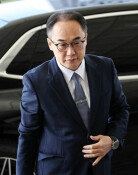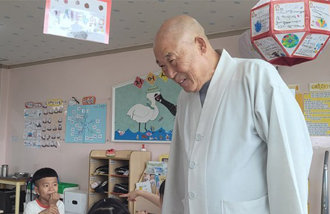Unveiling the Heir Apparent`s Face
North Korea released Thursday photos of leader Kim Jong Ils mysterious youngest son and heir apparent Jong Un through the Rodong Sinmun, the newspaper of the ruling Workers Party. The move was unprecedented considering that Kim Jong Il remained unknown to the outside world for six years after being officially named successor to his father Kim Il Sung. The latest move is interpreted as Pyongyangs intent to have the junior Kim begin a propaganda campaign aimed at solidifying his status by making public activities, such as visits to military units and industrial facilities. It also suggests that the North is in a hurry to complete the power succession.
The same day when Kim Jong Uns face was unveiled, the North made a nuclear threat. This reminded the world that expecting Pyongyang to change is tough. The North`s ambassador to the U.N. Pak Kil Yon said in a speech to the U.N. General Assembly, As long as U.S. nuclear aircraft carriers sail around the seas of our country, our nuclear deterrent can never be abandoned but should be strengthened further.
Pak blatantly expressed Pyongyangs intention to define itself as a nuclear state while calling Seoul and Washington destroyers of peace. Though the North has given conciliatory gestures since the March 26 sinking of the South Korean naval vessel Cheonan, including talk of the resumption of the six-party nuclear talks, the nuclear threat clearly shows Pyongyangs tactics. The Norths attitude did not change at inter-Korean working-level military talks Wednesday, the first of their kind in two years at Pyongyangs request. North Korean delegates continued to deny their militarys responsibility for the Cheonan sinking, and instead made absurd demands that Seoul accept Pyongyangs proposal to send an investigation team and that the South stop scattering anti-North leaflets over the North. Because of these preposterous demands, the talks went nowhere and ended in just 90 minutes with no concrete results.
In light of the Norths power succession, attention is needed on Kim Jong Uns promotion to a four-star general and appointment as vice chairman of the Workers Partys Central Military Commission. The commission is in charge of the partys military policy. Ri Yong Ho, chief of the general staff of the North Korean Peoples Army, was also promoted to vice chairman of the commission. Kim Yong Chol, head of the Norths military intelligence who is suspected of leading the torpedo attack on the Cheonan, was also named to the commission rather than being dismissed. The appointment shows that Pyongyang will accelerate its provocations against Seoul by putting to the front the junior Kim, who will have control over the party and military, and his aides.
When the North revised its party covenants, it maintained its goal of seeking reunification of the Korean Peninsula by communizing the South and newly included the expression military-first politics. Like father, like son. While dialogue with the North is desirable, the South should always be aware of its communist neighbors true intentions.







